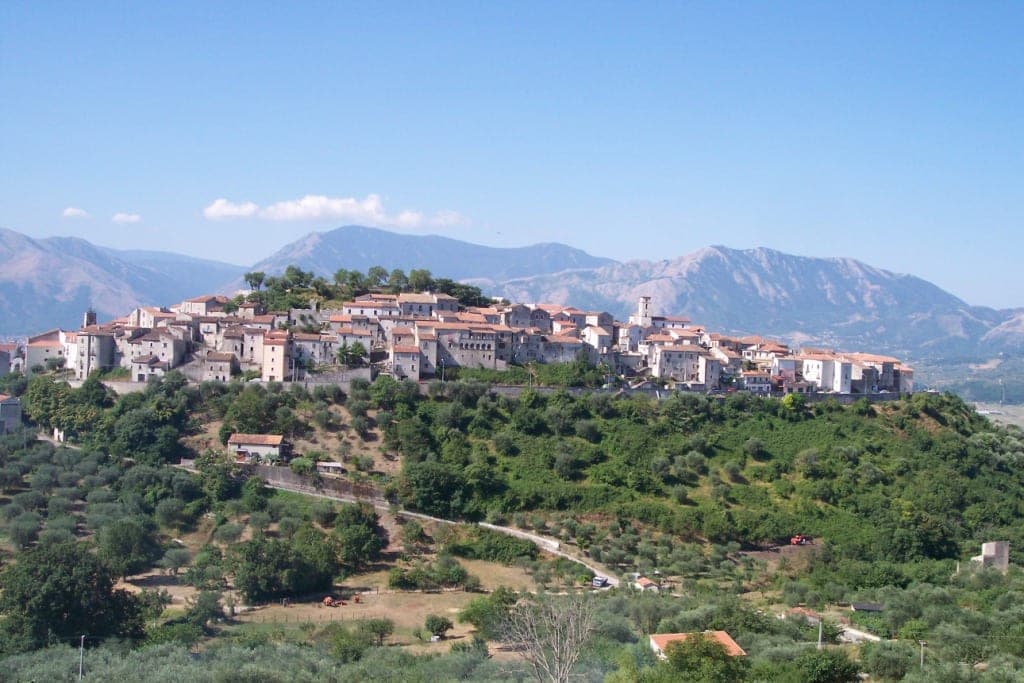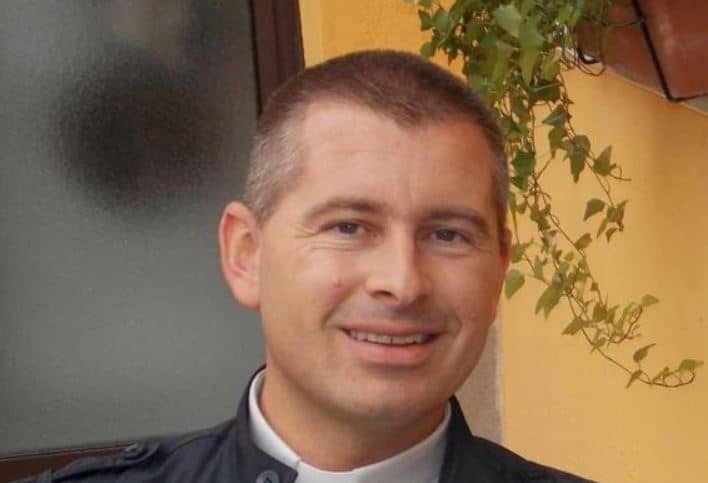ROME – As Italy’s coronavirus crisis continues, four small towns in the southern Italian province of Salerno have been placed under quarantine due to an outbreak of the pandemic that reportedly originated in a spiritual retreat led by the Neocatechumenal Way, one of the “new movements” in the Catholic Church.
The Feb. 29-March 1 retreat held in a hotel in the small southern Italian town of Atena Lucana attracted roughly 20 participants, among them a 76-year-old man from the nearby town of Bellizzi, who later died on March 10 from the coronavirus. His wife reportedly has also tested positive for the disease and has been placed under quarantine.
Since then, 16 other cases of infection have cropped up in four towns where residents participated in that retreat, as well as another retreat with some of the same people held in a nearby location March 4.
Going forward, the case may shape a burgeoning debate in Italy about how the Church should deliver pastoral care despite a nationwide lockdown.
Some local media reports linked the outbreak to drinking from the same chalice during the Mass, which is common practice at Neocatechumenate liturgies, suggesting that may have been the mechanism through which the virus was transmitted. However, Bishop Antonio De Luca of the Diocese of Teggiano-Policastro, where the retreats took place, said that wasn’t the case.
“I immediately spoke to the priest who celebrated, and he guaranteed me that all the norms for prevention issued by the bishop were categorically respected, including the elimination of the sign of peace, the distribution of communion in the hand, and maintaining the prescribed distance among people,” De Luca said.
De Luca also said there was no Mass at the second retreat on March 4, adding he’s “extremely saddened” by the situation.
A spokesperson for the Neocatechumenal Way told Crux Monday that the group is in full compliance with measures laid down by Church and state.
“The Neocatechumenal Way obeys and respects the dispositions issued by the diocesan bishops and the civil authorities,” the spokesman said.
Three priests and 16 other persons who took part in the retreats have been identified and given tests for the virus.
“These are tests we absolutely have to do,” said Doctor Rosa D’Alvano, an official from the local health service.
“The hope, obviously, is that all the results will be negative, but it’s something we have to do as quickly as possible,” D’Alvano said.
The four towns placed under quarantine are Atena Lucana, Caggiano, Polla and Sala Consilina. Their 16 cases come amid a combined population of 22,900. That’s a higher infection rate than the national average, despite the fact that the vast majority of cases in the country are concentrated to the north.
The retreats occurred at the beginning of Lent and were intended to help Catholics prepare for the period leading up to Easter. Father Gabrielle Petroccelli, pastor of Holy Trinity church in Sala Consilina, issued a message via social media emphasizing that the retreats did not take place with his authorization.
“There were no meetings with the Neocatechumenate in my parish,” Petroccelli said. “They asked me to do one, but I said to the person in charge that in light of the indications given by the government on the coronavirus emergency, I would not authorize the meeting on parish grounds.”
“Unfortunately, they went someplace else to do it,” he said.
A local newspaper, La Città in Salerno, quoted one participant in the retreat anonymously, who insisted that there was no warning sign of any danger.
“We were about 20 people, and we sincerely did not imagine that the elderly man could have the coronavirus,” the participant said. “During the days of the retreat, no one had the least suspicion. We knew only that he got sick once he got back to Bellizzi.”
Founded in Spain in 1964 by two laity, Kiko Argüello and Carmen Hernández, the Neocatechumenal Way provides post-baptismal formation for adults who are either already in the Church or who’ve become distant from it. It’s seen as a primary agent of the Church’s efforts at “New Evangelization,” and has had its greatest growth in Mediterranean cultures, including Italy, as well as Latin America.
Today, the Neocatechumenate claims more than 20,000 communities around the world with a total following in excess of one million people.
At Masses celebrated by the Neocatechumenal Way, it’s common practice for the consecrated bread to be distributed by the priest to all participants, who receive in the hand, and who refrain from consuming it until the priest returns to his seat. In similar fashion, the priest moves about the assembly and offers the consecrated wine to all participants, who generally drink from the same chalice unless the group is large enough to require more than one.
Priests are encouraged to consecrate enough wine so that all participants can take a healthy drink, rather than the small sips common at most Catholic Masses. These practices are intended to emphasize the nature of the Eucharist as a sacramental feast, though they’ve proven controversial among critics who see them as a departure from the Church’s general liturgical rules.
Concerns that religious assemblies such as the two retreats create conditions under which the coronavirus can spread may shape what has been a growing ambivalence in Italian Catholic circles, with some insisting upon strict compliance with government restrictions in order to curb the disease, and others arguing that, especially in moments of crisis, priests are obliged to provide pastoral care and to make the sacraments available.
Pope Francis has called for compliance with necessary precautions, but also called for priests to find ways to ensure that “the holy faithful people of God” are not left “alone” amid the pandemic.
Crux is dedicated to smart, wired and independent reporting on the Vatican and worldwide Catholic Church. That kind of reporting doesn’t come cheap, and we need your support. You can help Crux by giving a small amount monthly, or with a onetime gift. Please remember, Crux is a for-profit organization, so contributions are not tax-deductible.

















